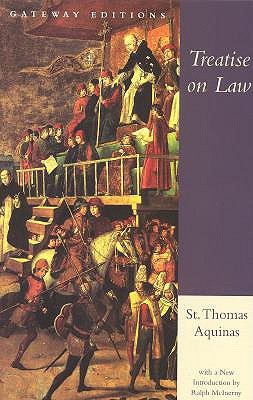Treatise on Law: Summa Theologica, Questions 90-97
by Thomas Aquinas
St. Thomas's Summa theologiaeSumma theologiae is often compared to a medieval cathedral because of its sublime construction both as a work of logic and literary architecture.
Here is a mere tip of one of the spires, summarizing the great Saint's views on the nature and structure of law.
Believing that law achieves its results by imposing moral obligations rather than outright force, St. Thomas defines the Christian view of liberty.
Here is a mere tip of one of the spires, summarizing the great Saint's views on the nature and structure of law.
Believing that law achieves its results by imposing moral obligations rather than outright force, St. Thomas defines the Christian view of liberty.
BUY NOW
Paperback, 116 pages
Published September 1st 1996 by Gateway Editions
© 2025 Bibleportal.com 版权所有.

Thomas Aquinas was an immensely influential philosopher and theologian in the tradition of scholasticism, known as Doctor Angelicus and Doctor Communis.
He was the foremost classical proponent of natural theology, and the father of the Thomistic school of philosophy and theology. His influence on Western thought is considerable, and much of modern philosophy was conceived as a reaction against, or as an agreement with, his ideas, particularly in the areas of ethics, natural law and political theory.
The philosophy of Aquinas has exerted enormous influence on subsequent Christian theology, especially that of the Roman Catholic Church, extending to Western philosophy in general, where he stands as a vehicle and modifier of Aristotelianism, which he fused with the thought of Augustine.
... Show more